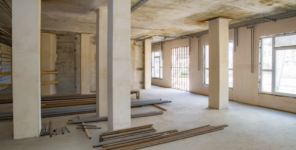Should Builders Who Declare Bankruptcy Face Legal Consequences?

About a dozen construction companies have gone into receivership across Australia since the start of the year, leaving thousands of Australians unemployed, out of pocket, robbed of superannuation, and potentially homeless.
This is a multi-billion dollar industry – certainly a cornerstone of the national economy. So how can something like this happen?
Building company collapses – is the pandemic to blame?
The pandemic has been cited as one of the background issues that led to this point, and perhaps that’s valid. Certainly, the construction industry was greatly affected by lockdowns. It was also seriously affected by mandatory vaccinations.
At one point the various Covid-19 regulations imposed on the industry led construction workers in Victoria to protest in the streets. For the best part of a week in September 2021, Tradespeople and police officers faced off in Melbourne, resulting in some angry clashes.
There were claims that the protests had been “heavily infiltrated by neo-Nazis and other right wing extremist groups”, and the scenes – which made worldwide headlines – were ugly: people were violently arrested, some were even sacked for attending protests.
Since then, though, the industry, like the rest of the country, has moved on. But it is also important to acknowledge that since the start of 2022, the economic landscape has changed — basic costs such as electricity, insurance and petrol have risen sharply.
There are skills shortages across most industries, and there have been rises in building material costs and logistics and transport, along with supply chain disruptions.
Interest rates are soaring, and the banks are being particularly cautious about lending. All of this combined, according to some analysts, created something of a perfect storm.
But here’s the thing – all Australian businesses are affected by these changes to some degree, and they are not all falling over.
NSW Building and Construction Industry legislation
A good deal of consensus over these company collapses related to fixed price contracts – which are the most common types of contracts used in domestic building work. Despite the name, within these contracts there is some, although limited, flexibility for builders to pass on increasing costs.
So this argument also perhaps deserves closer scrutiny. Irrespective of that, many would agree that serious questions need to be asked about whether these companies had good processes for risk management and prudent fiscal management,
Building legislation is different across each state and territory. In New South Wales, there are three key pieces of legislation which govern the building and construction industry – they are:
- Home Building Act 1989
- Design and Building Practitioners Act 2020
- Residential Apartment Buildings (Compliance and Enforcement Powers) Act 2020
In Western Australia, there are five pieces of legislation – it’s complicated, to say the least.
And there have long been concerns that it is the complexity of the legislation that enables unscrupulous operators to take advantage.
Indeed, we’ve seen this time and again, most recently in the financial industry, although the Royal Commission into Misconduct in the Banking, Superannuation and Financial Services Industry made significant recommendations in its final report tabled in Parliament in 2019, to ensure that corrupt and unethical practices can no longer occur. As a result of the Royal Commission several senior bankers faced criminal charges.
Do we need a similar inquiry into the construction industry? Many would say: absolutely yes.
Cowboy operators
It has long had a questionable reputation, marred by ‘cowboy operators’ who declare bankruptcy then simply walk away from the devastation onto the next project. This is evidenced to a degree by regular stories in the media about rip-offs, bankruptcies and substandard work which give the industry ‘good guys’ a bad name.
However, what’s required right now, is immediate triage on the catastrophe at hand. An independent inquiry to determine what went wrong and why is probably a sensible idea, but it could take months.
In the meantime, right now we have hundreds of people jobless, home-owners who have lost deposits they’re unlikely to ever recover, some perhaps with mortgages they’re still expected to pay, even with the prospect of a dream home that’s turned into their worst nightmare.
These catastrophes will only add to the pervasive housing affordability and homelessness crisis as well as the financial stress of basic day-to-day living that many Australians are already under.
Should state governments intervene?
Many would argue that there needs to be some kind of intervention or bail out, but so far governments have been eerily quiet. Yet the magnitude of these collapses has the very serious consequence of undermining public confidence in the industry.
The fact is that companies rarely go belly up overnight – there are usually warning signs.
Under the Corporations Act 2001 there are both civil and criminal penalties for directors who are found to have allowed a company to trade when it is insolvent. Insolvent is the term given to a company which can’t pay debts when due, or whose liabilities (the amount owed) is greater than the value of their assets (the company’s total worth).
It’s likely that if there has been any illegal activity of this kind it will be determined once the insolvency firms step in to clean up the mess.
However, to make matters worse for those people who are owed deposits, or salaries, or super, under current bankruptcy laws, the big creditors – the big creditors – banks, other financiers, the ATO etc will get paid first. People owed “smaller” amounts will be towards the end of the queue.
The whole situation is incredibly unfair – and perhaps there is no wrongdoing on the part of these companies – only time will tell. But these people entered contracts in good faith, only to find out that those contracts aren’t necessarily worth the paper they are written on under the current circumstances.
Those wanting to seek justice can take civil action, or organise a class action, but this too can be a lengthy and drawn out process – and reimbursement of funds lost is not always guaranteed, particularly if these companies have no funds available. As the old saying goes: ‘You can’t get blood from a stone.’
The most important thing here is that what’s happened to these people doesn’t just get chalked up to ‘bad luck’. Victims want, and deserve, an explanation. And right now, they definitely need help navigating the fallout.







